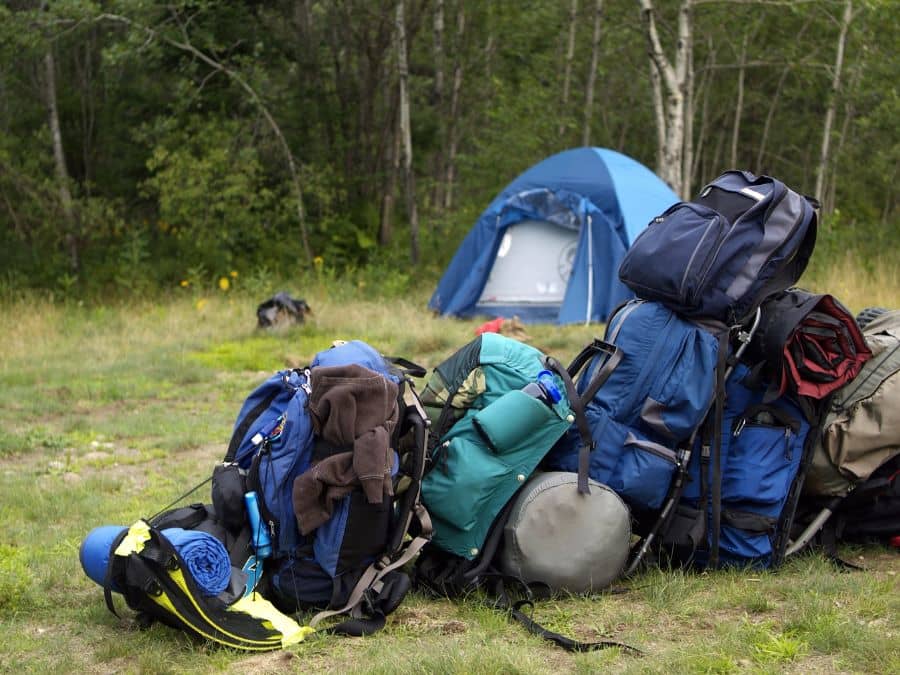Nature’s Playground: Eco-Friendly Adventures
Exploring Eco-Friendly Adventures: Protecting Nature While Having Fun
The Importance of Eco-Friendly Adventures
We live in a world where the environment is under constant threat from human activities. It has become increasingly important for us to find ways to enjoy nature while also preserving it for future generations. Read more about Finding Your Way: Mastering the Art of Navigating with a Compass
This is where eco-friendly adventures come in. These types of activities allow us to engage with the natural world while minimizing our impact on it.
When we choose to participate in eco-friendly adventures, we are not only protecting nature but also supporting local communities and economies. One of the primary reasons why eco-friendly adventures are so important is that they help to reduce our carbon footprint.
By choosing sustainable travel options, such as public transportation or carpooling, we can significantly decrease the amount of greenhouse gases emitted into the atmosphere during our travels. Additionally, when we engage in activities like hiking or camping with Leave No Trace principles, we minimize our impact on natural habitats and their inhabitants.
The Benefits of Protecting Nature While Having Fun
Protecting nature is not only about ensuring that future generations have access to pristine wilderness areas; it also has many benefits for our well-being and overall quality of life. When we spend time in nature, whether it’s hiking through a forest or kayaking down a river, we experience a range of mental and physical health benefits. Studies have shown that spending time outdoors can reduce stress levels, boost creativity, improve mood and self-esteem, and even enhance cognitive function.
Additionally, being in nature allows us to disconnect from technology and reconnect with ourselves and each other. Furthermore, engaging in eco-friendly adventures supports local conservation efforts by providing economic incentives for protecting natural areas.
It helps local communities recognize the value of their natural resources beyond short-term gains from logging or mining activities. Eco-friendly adventures provide an opportunity for us to protect nature while having fun.
It allows us to enjoy the benefits of being in nature, while minimizing our impact on it. In the next sections, we will explore some eco-friendly activities and sustainable travel options that can help us achieve this goal.

Eco-Friendly Activities for Outdoor Enthusiasts
Hiking and camping with Leave No Trace principles
Hiking and camping are great outdoor activities that allow people to connect with nature. However, it’s essential to practice Leave No Trace principles while doing these activities to minimize the impact on the environment. These principles include packing out all trash, staying on designated trails, and avoiding damaging plants or wildlife.
To make your hiking and camping trip more eco-friendly, try using biodegradable soaps, packing reusable containers instead of disposable ones, and choosing eco-friendly gear made from recycled materials. If you’re camping overnight, look for campgrounds with sustainable practices such as composting toilets or solar-powered amenities.
Kayaking and paddleboarding in protected waterways
Kayaking and paddleboarding are fantastic ways to explore the beauty of protected waterways while minimizing your environmental footprint. When choosing a location for your adventure, look for areas designated as protected or ecologically sensitive.
Before heading out on your kayaking or paddleboarding adventure, educate yourself on local environmental regulations and guidelines for watercraft use. Always wear a life jacket and avoid interacting with wildlife in their natural habitat.
Wildlife watching tours with ethical operators
Wildlife watching tours can be an incredible experience but be wary of operators that prioritize profits over the well-being of animals. Look for ethical operators that prioritize minimizing human impact on wildlife populations. Choose tours that prioritize observing wildlife from a distance rather than getting up close with them.
These operators will typically have experienced guides who can share information about the animals without causing harm to them or their natural habitats. By enjoying these eco-friendly activities while practicing responsible habits in nature like “Leave No Trace” principles & choosing sustainable accommodations/campsites etc., we can continue exploring nature without leaving a negative impact behind!

Sustainable Travel Options for Adventure Seekers
Choosing Eco-Lodges and Sustainable Accommodations
When planning your eco-friendly adventure, it’s important to consider the impact of your accommodation. Fortunately, there are many eco-lodges and sustainable accommodations available around the world. These accommodations prioritize sustainable practices such as using solar energy, recycling, and reducing water waste.
They may also offer locally sourced meals and participate in conservation efforts. One great example of an eco-lodge is the Sekonyer River Lodge in Borneo.
The lodge uses solar power for lighting and hot water, recycles waste, and supports local conservation efforts. They also offer guided tours of Tanjung Puting National Park to see orangutans in their natural habitat.
When choosing an eco-lodge or sustainable accommodation, make sure to research their sustainability practices beforehand. Look for certifications such as LEED or EcoLuxury if possible.
Using Public Transportation or Carpooling to Reduce Carbon Footprint
Transportation can be a significant contributor to carbon emissions during travel. To reduce your impact on the environment, consider using public transportation or carpooling whenever possible.
This not only reduces emissions but also helps you save money on gas. Many cities have public transportation options such as buses or trains that can take you to nearby hiking trails or other outdoor adventures.
Apps like RideShare make it easy to find carpooling options with other travelers headed in the same direction. If you do need a rental car, opt for a fuel-efficient model like a hybrid or electric vehicle if available.
Supporting Local Conservation Efforts Through Responsible Tourism
Responsible tourism involves supporting local communities and conservation efforts through your travel choices. When planning your eco-friendly adventure, look for opportunities to support local conservation initiatives.
This might include taking guided tours led by trained naturalists who work to protect wildlife habitats. Or, you could participate in a volunteer program that supports conservation projects such as cleaning up beaches or restoring habitats.
You can also support local communities by eating at locally owned restaurants, shopping at locally owned stores, and staying at accommodations that support the local economy. This not only helps the environment but also helps to create sustainable tourism practices that benefit both travelers and locals alike.

Niche Eco-Friendly Adventures for the Adventurous Spirit
Volunteering on Conservation Projects Abroad: Making a Positive Impact
If you’re looking to take your eco-adventures to the next level, volunteering on conservation projects abroad is an excellent option. Not only will you have the opportunity to travel and experience new cultures, but you’ll also be making a positive impact on the environment. There are many different types of conservation projects available, including wildlife rehabilitation centers, marine conservation programs, and reforestation efforts.
Many of these organizations offer volunteer opportunities for people of all backgrounds and skills levels, so there’s something for everyone. Volunteering on a conservation project is not only rewarding but can also be life-changing.
You’ll learn new skills and make lasting connections with like-minded individuals. Plus, you’ll have the satisfaction of knowing that you’re making a tangible difference in protecting our planet’s precious natural resources.
Participating in Citizen Science Programs: Contributing to Research
For those interested in science and research, participating in citizen science programs can be a rewarding way to contribute to scientific knowledge while also enjoying nature. Citizen science programs involve volunteers collecting data on wildlife populations or environmental factors that are used for research purposes. There are many different types of citizen science programs available depending on your interests.
For example, bird-watching enthusiasts can participate in bird counts or help track migratory patterns. Those interested in marine life can participate in surveys to monitor coral reefs or sea turtle nesting habits. More about Leave No Trace: The Ultimate Guide to Eco-Friendly Camping
Participating in citizen science programs not only contributes valuable data to scientific research but also allows individuals to connect with nature on a deeper level. It provides an opportunity to learn about local ecosystems while making meaningful contributions towards their preservation.
Exploring Lesser-known Natural Wonders: Discovering Hidden Gems
While popular destinations such as national parks offer stunning natural beauty, some of the most breathtaking spots are often lesser-known and off the beaten path. Exploring these hidden gems not only provides an opportunity for adventure but can also help reduce overcrowding at popular destinations. There are many ways to discover lesser-known natural wonders, including researching online or talking to locals.
Some examples of these hidden gems include waterfalls, hot springs, or remote hiking trails. These places often require more effort to reach but offer a more rewarding experience in return.
Exploring lesser-known natural wonders also provides an opportunity for responsible tourism. By visiting these hidden gems with respectful practices and Leave No Trace principles, we can help preserve them for future generations and ensure that they remain pristine and untouched by mass tourism.

Tips for Incorporating Eco-Friendly Practices into Your Adventures
Packing sustainably with reusable containers and water bottles
One of the easiest ways to reduce your environmental impact while adventuring is by packing sustainably. Instead of using single-use plastics, bring reusable containers and water bottles. There are plenty of options on the market made from eco-friendly materials like bamboo, glass, and stainless steel.
By bringing your own reusable items, you can cut down on waste that would otherwise end up in landfills or polluting our oceans. Not only is packing sustainably better for the environment, but it’s also more convenient.
You won’t have to worry about running out of bottled water or constantly buying snacks wrapped in plastic. Plus, many outdoor destinations have refill stations available so you can easily top off your water bottle throughout the day.
Choosing eco-friendly gear made from recycled materials
Another way to reduce your environmental impact while adventuring is by choosing eco-friendly gear made from recycled materials. Many companies now offer products like backpacks, jackets, and sleeping bags made from recycled plastic bottles or other sustainable materials like hemp or bamboo.
These products not only help reduce waste but are often high-quality and long-lasting as well. When shopping for gear, look for certifications like bluesign® or Fair Trade Certified™ to ensure that the products you’re purchasing meet certain environmental and ethical standards.
Educating yourself on local environmental issues and how you can help
One of the most important ways to incorporate eco-friendly practices into your adventures is by educating yourself on local environmental issues and how you can help. Whether it’s researching ways to reduce your carbon footprint while traveling or learning about conservation efforts in a specific area, knowledge is power when it comes to protecting nature. Consider talking with locals or joining a guided tour with an expert who can give you insight into the local ecosystem.
You can also look for volunteer opportunities with conservation organizations or attend events focused on environmental education. By learning as much as possible about the environment you’re visiting, you can make informed decisions that help protect it for generations to come.

protecting our planet for future generations to enjoy
Recap of the Importance of Eco-Friendly Adventures
Eco-friendly adventures are more important than ever in today’s world. Our planet is facing numerous environmental challenges, and our actions have a significant impact on the environment. By incorporating sustainable practices into our adventures, we can reduce our carbon footprint and protect natural resources for future generations to enjoy.
It’s essential to remember that eco-friendly adventure doesn’t mean sacrificing fun or excitement. There are plenty of activities and travel options that allow us to explore nature while supporting conservation efforts.
Encouragement to Continue Exploring While Protecting Nature
As outdoor enthusiasts, we have a responsibility to protect the environment we love. But it’s not just about responsibility; it’s also about experiencing a deeper connection with nature.
When we take care of the planet, we can fully appreciate its beauty and wonder. So let’s continue exploring while protecting nature.
Let’s choose eco-friendly adventures that support sustainability and conservation efforts. Let’s educate ourselves on local environmental issues and take action when possible.
Together, we can make a difference in protecting our planet for future generations to enjoy. So go out there, have fun, and explore this beautiful world sustainably!







